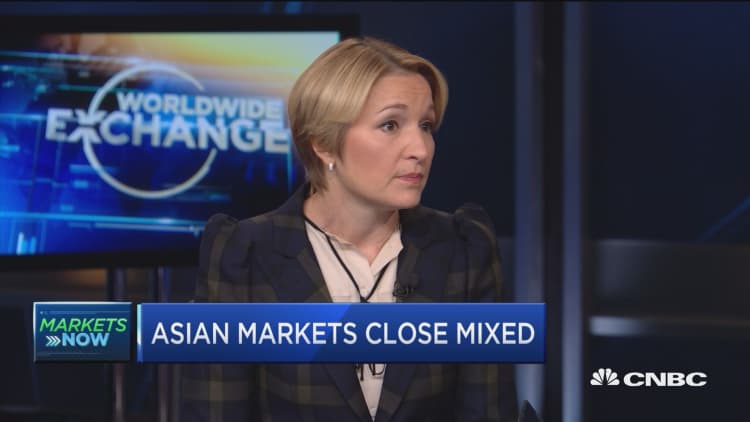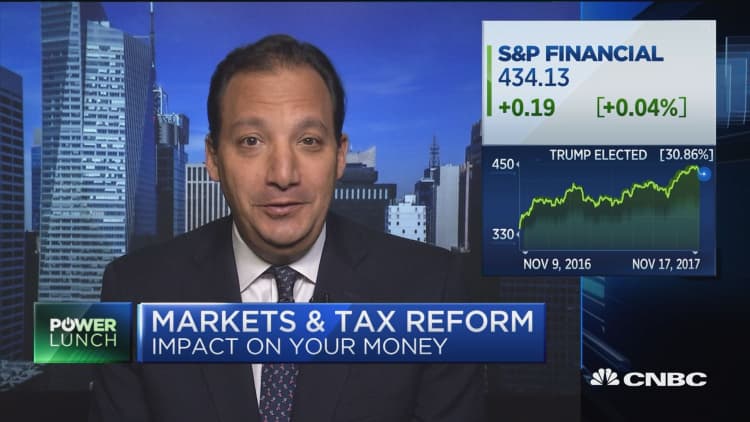Wall Street's big fear is that the bond the next economic downturn.
The 2-year Treasury yield keeps rising, hitting a high of 1.77 percent Tuesday, while the 10-year yield holds fairly steady at close to 2.35 percent. The distance between the two has been narrowing, and as the curve flattens daily to fresh 10-year lows, there is a bubbling concern that it signals trouble ahead.
If it were to actually invert, with the 2-year yield rising above the 10-year, history shows that is often a recession indicator.
BlackRock's Rick Rieder tells CNBC that's not what is happening this time.
"I don't think today's price action, particularly the shape of the curve, I don't think it says anything about the economy," said Rieder. He said the Treasury has said it would issue more notes in the 2- to 5-year part of the curve, which could push yields higher. Yields move opposite price. "I think it's more supply, demand than it is anything about the economy."

Traders say the short end of the market, especially the note, has been rising ahead of Fed interest rate hikes, as the futures market also prices in 100 percent chance for a rate hike Dec. 13.
But Rieder, the firm's global chief investment officer of fixed income, said the 10-year yield is being influenced by other factors, including international buyers moving funds into U.S. Treasurys as yields remain low in other parts of the world. He also said the tax bill may be prompting some buying, as the corporate tax rate could shift from 35 percent to 20 percent if the current proposals become law.
"There's a pension dynamic of companies funding pensions and others funding pensions, giving the higher tax regime this year. They've been funding it by buying the longer end of the yield curve," he said. "If you were funding your pension, if you were making a contribution to fund your pensions, you'd rather have that expense in 2017."
Rieder said he expects rates to move higher, with the heading to 2.50 to 2.75 by year end. "I would suggest long end rates are too low…We believe inflation is accelerating," said Rieder.
Rieder said the and he expects it to grow at a decent pace in 2018, but says the stimulus from the tax bill may be coming at the wrong time and could actually overheat a solid economy.
"I do worry that you could have a recession as you get into '19 or '20. The bill definitely will spring board growth and I think people underestimate the multipliers associated with that. You could see 3 percent growth or higher next year," he said.
Rieder said capital spending is already accelerating and leads to future growth. "Even if you didn't get a tax bill, the economy will be in decent shape," he said. "A number of reforms make sense...This isn't the perfect time for it."
Rieder said he thinks the 20 percent tax rate is too low, and it would be a positive if it was cut to between 25 and 27 percent. "The 'pay fors' required suggest if you go to 25 to 27 percent , you would create many of the same benefits without the press of debt."
The recent in the high yield market was not surprising, given the time of year, said Rieder. "At year end, you have less liquidity in the market. People tend not to take a lot of risk at year end. If there's anything that lights the flame, anything of concern, markets will be volatile. It doesn't take much at this time of year to create volatility. I think you'll see if there's any news, there will be more volatility," he said.
Rieder said he expects a more volatile market next year, as the Fed and other central banks move to tighten policy.
WATCH: Bonds may start to compete with stocks



